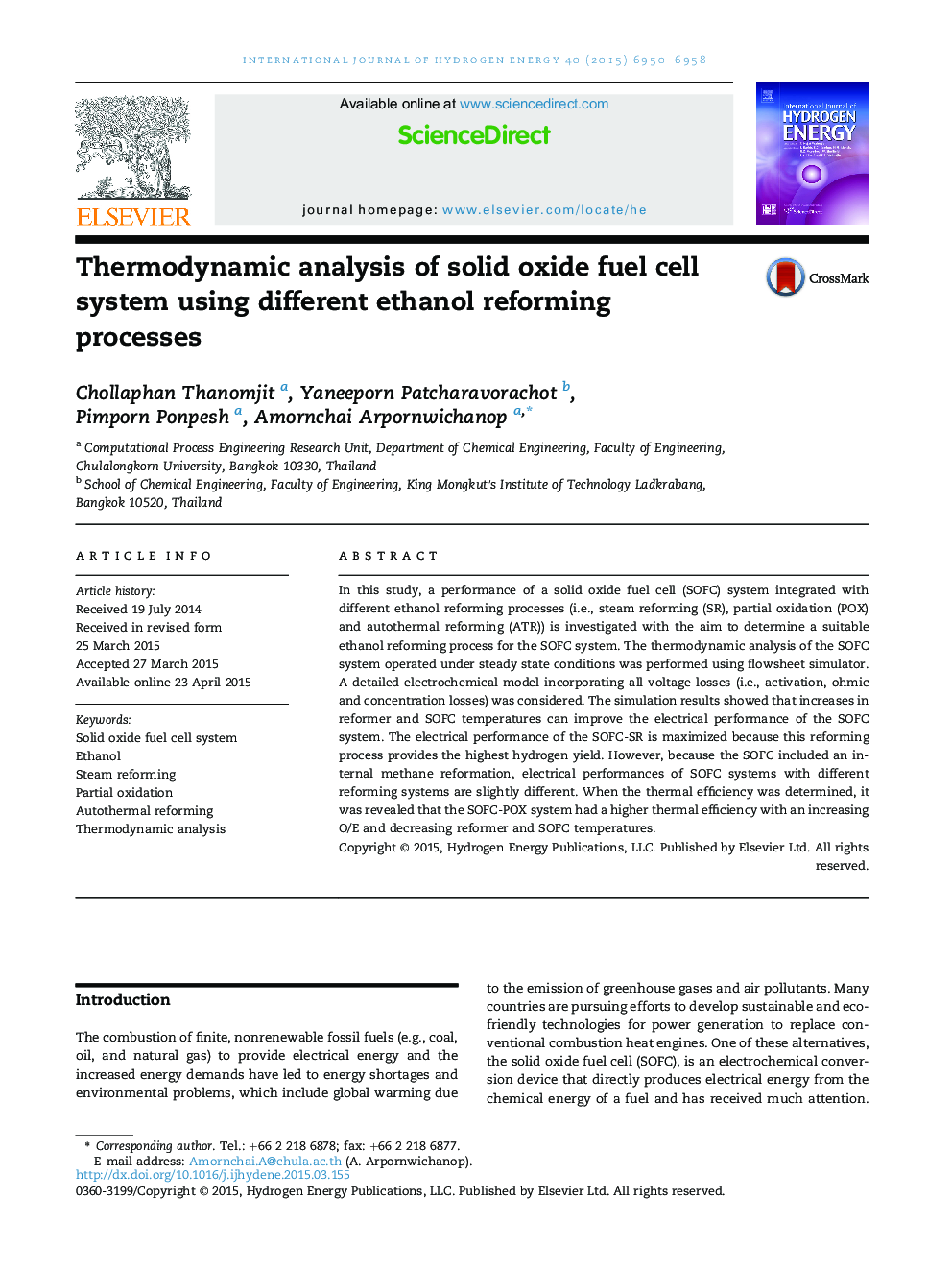| Article ID | Journal | Published Year | Pages | File Type |
|---|---|---|---|---|
| 1271204 | International Journal of Hydrogen Energy | 2015 | 9 Pages |
Abstract
In this study, a performance of a solid oxide fuel cell (SOFC) system integrated with different ethanol reforming processes (i.e., steam reforming (SR), partial oxidation (POX) and autothermal reforming (ATR)) is investigated with the aim to determine a suitable ethanol reforming process for the SOFC system. The thermodynamic analysis of the SOFC system operated under steady state conditions was performed using flowsheet simulator. A detailed electrochemical model incorporating all voltage losses (i.e., activation, ohmic and concentration losses) was considered. The simulation results showed that increases in reformer and SOFC temperatures can improve the electrical performance of the SOFC system. The electrical performance of the SOFC-SR is maximized because this reforming process provides the highest hydrogen yield. However, because the SOFC included an internal methane reformation, electrical performances of SOFC systems with different reforming systems are slightly different. When the thermal efficiency was determined, it was revealed that the SOFC-POX system had a higher thermal efficiency with an increasing O/E and decreasing reformer and SOFC temperatures.
Related Topics
Physical Sciences and Engineering
Chemistry
Electrochemistry
Authors
Chollaphan Thanomjit, Yaneeporn Patcharavorachot, Pimporn Ponpesh, Amornchai Arpornwichanop,
